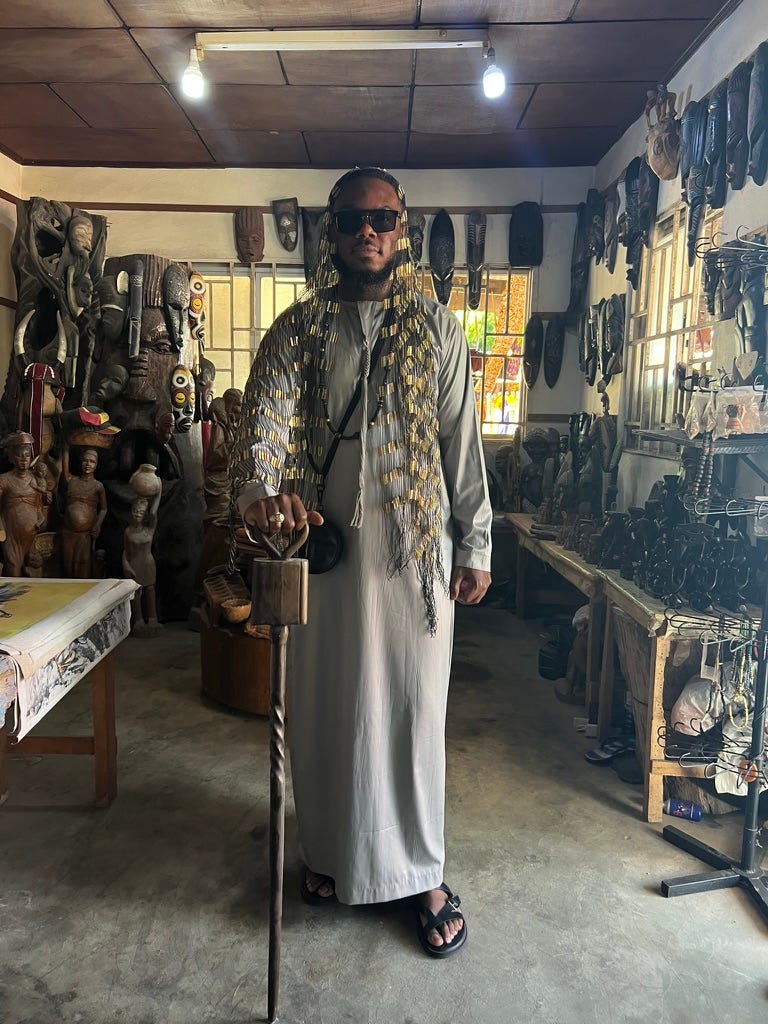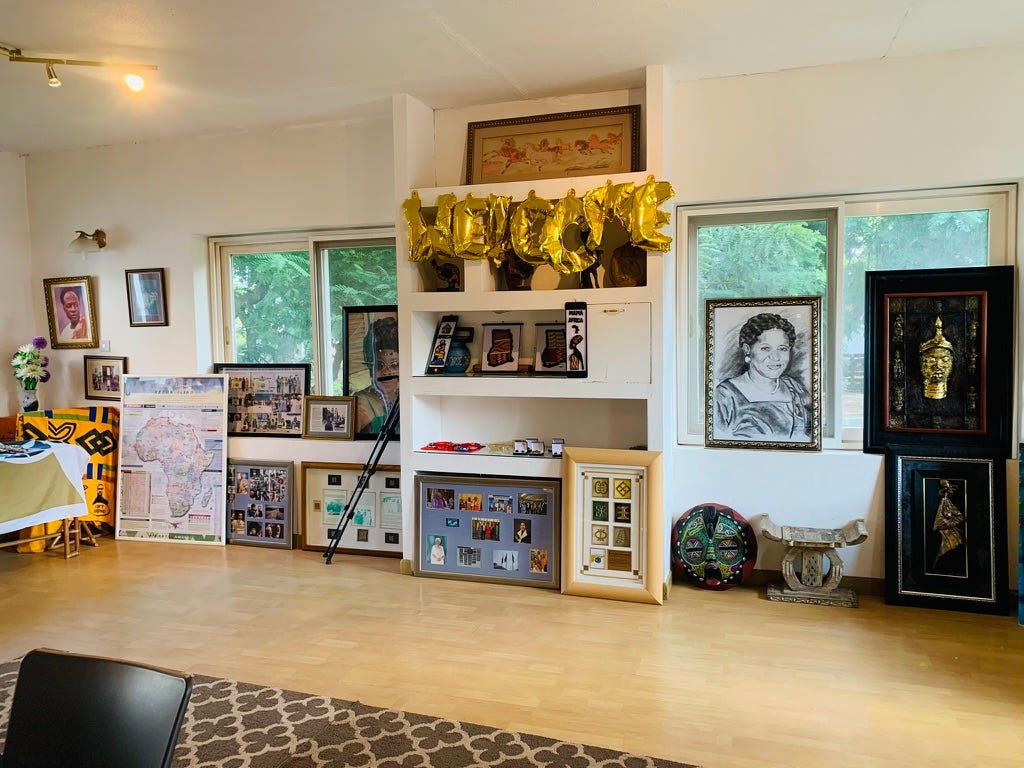Why Black Americans Feel Seen in Ghana
What it means to be recognized in the land of Blackness.
The First Headnod That Told Me I Was Home
Stepping foot off the plane at Kotoka Airport, my eyes locked with a security guard. I saw him, and he saw me. We gave each other the Black man headnod, and that’s when I knew what was up. This moment reassured me that everything was safe and that I was seen. In America, Black men give one another the headnod all the time, but it hit differently in an international context—especially among the growing number of Black Americans in Ghana. It meant something deeper.
As I exited the airport and traversed through traffic, I was admired by all the street vendors. When they passed by my car window, they stared in awe. Were they looking at an obruni or a prince? Their gaze held reverence and perplexity. Everywhere I went in Ghana, I felt welcome.
The Essence of Living in a Black Society
Being in a country where everyone looks like you is not synonymous with being in a community where everyone looks like you. I quickly got past the physical; Black faces became the new normal. Instead, what stuck with me was the essence of a Black society. Blackness rooted everything. I felt safe, secure, and in harmony with my body.
By my second week, I had become so used to being surrounded by a sea of kente that when I saw a real obruni, I stared the way Ghanaians did. It was strange to see Asian, Dutch, or Arab foreigners in Africa—the one place I thought I could escape to and simply be.
Finding Grounding at the W.E.B. Du Bois Center
Initially, I felt out of place. The way I dressed, my accent, my je ne sais quoi—it all made me stand out to the observant Ghanaian eye. I felt targeted for my Americanness whenever I shopped in the markets and got price-gouged.
That changed the morning I took a taxi to the W.E.B. Du Bois Center. I was greeted by Pan-Africanists and a statue of Du Bois himself. Learning about his life in Accra grounded me. It felt synchronous that I, a few generations later, was walking the same path—following the call of returning home to Africa and setting down roots.
Inside the Diaspora Center, I learned about the process of repatriation to Ghana for Black Americans. This—right here—was when I felt truly at home.
Unlearning America’s Script About Blackness
Being Black in America meant one thing: criminalization.
I wasn’t free to walk down the street, wear a durag, bump my music, or exist authentically without being stereotyped as ignorant or uneducated.
Anytime I left the house, my mom repeated the same line: “Be careful. They always see you before you see them.”
She meant the police.
Being Black in America meant having to work nonstop to prove myself to the white world around me. It meant hiding softness. It meant being told success looked like whiteness—marrying a white woman, living in a white suburb, playing the part.
In white spaces, I was too Black.
In Black spaces, I was “uppity.”
No matter where I stood, I was out of place.
A Childhood Spent Trying to Belong
When I begged my mom for Crocs, it wasn’t about shoes—it was about fitting in with the white kids at school. Before Obama’s election, I remember white classmates parroting their parents’ fears about him ruining the economy. Racism was their first language.
The next year, my mom moved me to a diverse school. For the first time, I saw Latino, Black, and Asian kids as normal—not tokens.
Learning My True Self in the Land of Blackness
In Ghana, I began to learn who I really was: creative, musical, brawny, spiritual, and alive.
I learned that African time—elastic and spiritual—was a rhythm of its own. I began to unlearn that being Black meant being dangerous, stupid, or inferior. I saw resourcefulness, survival, and innovation woven into the people around me.
In the heart of Makola Market, I saw the same fire in Ghanaians that I saw in Black folks back home. Through an African diaspora tourism lens to Ghana, I wasn’t just observing—I was reclaiming.
Safety, Belonging, and the Power of Being Seen
To be Black in the land of Blackness has no words—only feelings.
In Accra, I felt safe. Safe to the bone. Safe in a way I had never experienced in America.
To be Black here meant liberation, belonging, and recognition. I began to see myself as more African than diasporan—not because I wasn’t a child of the diaspora, but because I no longer felt separated from Africa. Reconnecting with the motherland is more than physical relocation; it’s mental, emotional, and spiritual unlearning.
Standing Taller in My Dashiki
Back in Texas, I walked into Gringo’s Tex-Mex wearing my Cameroonian dashiki. Cornrows tight. Shoulders squared. All eyes turned toward me. Curiosity—or disgust—I couldn’t tell. But I stood taller. I wanted to disrupt that space.
In Ghana, I found the courage to stop shrinking.
I embraced my Blackness unapologetically.
I carried myself like royalty—because my lineage is royal.
My voice deepened—you will hear me.
My back straightened—you will see me.
My fashion spoke—you will feel me.
I carried the glow of my ancestors.
Letting My Light Shine
This little light of mine, I’m gonna let it shine…
This hymn meant nothing to me as a child. Now, it is prophecy.
The light of my ancestors shines through me. God wrote this long before I was born.
As my plane descended into Houston, I felt that light blaze. I was no longer enslaved to America’s capitalist machinery. I came back spiritually adorned with my mansion, robe, and crown.
My ancestors told me I was destined for greatness.
The pen had been lifted.
The ink was dry.
I would lead my people back to Zion.






